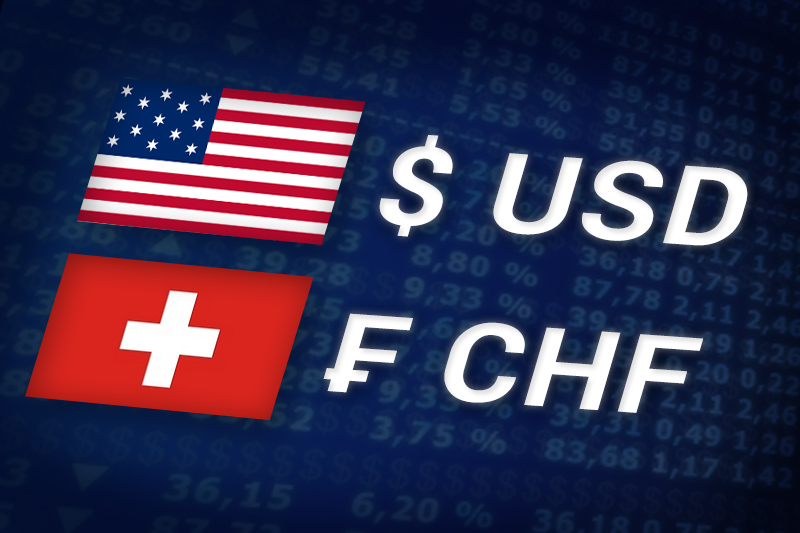Investing.com - The U.S. dollar erased early gains against the Swiss franc on Wednesday, as risk appetite sharpened on the bank of fresh hopes for an agreement on an aid deal for Greece and after stronger euro zone PMI data.
USD/CHF pulled away from 0.9250, the pair’s highest since January 25, to hit 0.9174 during European morning trade, shedding 0.29%.
The pair was likely to find support at 0.9117, Monday’s low and an almost two-month low and resistance at 0.9248, the session high.
Market sentiment was bolstered after data showed that the euro zone’s manufacturing purchasing managers’ index rose to 48.8 from an earlier estimate of 46.9 in December, but the data showed that only Germany registered a reading above 50, indicating expansion.
Earlier Wednesday, Greek newspaper Kathimerini reported that the head of the International Monetary Fund mission to Athens said talks on a new loan program for the country will conclude within a matter of days.
Earlier in the week, Greek officials indicated that separate negotiations with the country’s private creditors were very close to being concluded, but concerns have persisted that the debt swap deal will not go far enough to reduce the country’s debt load.
In Switzerland, official data showed that Swiss retail sales rose less-than-expected in December, while manufacturing activity unexpectedly contracted in January.
The Federal Statistical Office said that retail sales rose at annualized rate of 0.6% in December, significantly below expectations for a 1.6% increase.
The SVME purchasing managers' association PMI fell to 47.3 points from revised 49.1 in December, disappointing expectations for an increase to 51.2.
The weak data underlined expectations for weak growth in the Swiss economy in the coming months.
Elsewhere, the Swissie was trading close to the minimum exchange rate cap of 1.20 against the euro, with EUR/CHF inching up 0.03% to hit 1.2042, fanning speculation over a fresh intervention by the Swiss National Bank.
Later in the day, the U.S. was to release a report on ADP non-farm payrolls, as well as a data from the Institute for Supply Management on manufacturing sector activity.
USD/CHF pulled away from 0.9250, the pair’s highest since January 25, to hit 0.9174 during European morning trade, shedding 0.29%.
The pair was likely to find support at 0.9117, Monday’s low and an almost two-month low and resistance at 0.9248, the session high.
Market sentiment was bolstered after data showed that the euro zone’s manufacturing purchasing managers’ index rose to 48.8 from an earlier estimate of 46.9 in December, but the data showed that only Germany registered a reading above 50, indicating expansion.
Earlier Wednesday, Greek newspaper Kathimerini reported that the head of the International Monetary Fund mission to Athens said talks on a new loan program for the country will conclude within a matter of days.
Earlier in the week, Greek officials indicated that separate negotiations with the country’s private creditors were very close to being concluded, but concerns have persisted that the debt swap deal will not go far enough to reduce the country’s debt load.
In Switzerland, official data showed that Swiss retail sales rose less-than-expected in December, while manufacturing activity unexpectedly contracted in January.
The Federal Statistical Office said that retail sales rose at annualized rate of 0.6% in December, significantly below expectations for a 1.6% increase.
The SVME purchasing managers' association PMI fell to 47.3 points from revised 49.1 in December, disappointing expectations for an increase to 51.2.
The weak data underlined expectations for weak growth in the Swiss economy in the coming months.
Elsewhere, the Swissie was trading close to the minimum exchange rate cap of 1.20 against the euro, with EUR/CHF inching up 0.03% to hit 1.2042, fanning speculation over a fresh intervention by the Swiss National Bank.
Later in the day, the U.S. was to release a report on ADP non-farm payrolls, as well as a data from the Institute for Supply Management on manufacturing sector activity.
